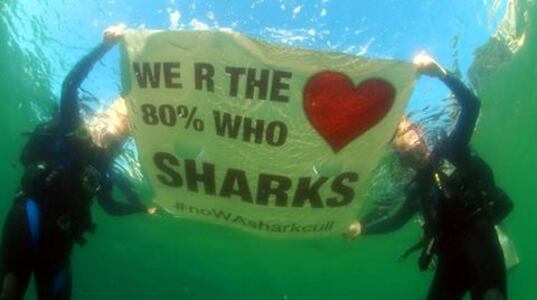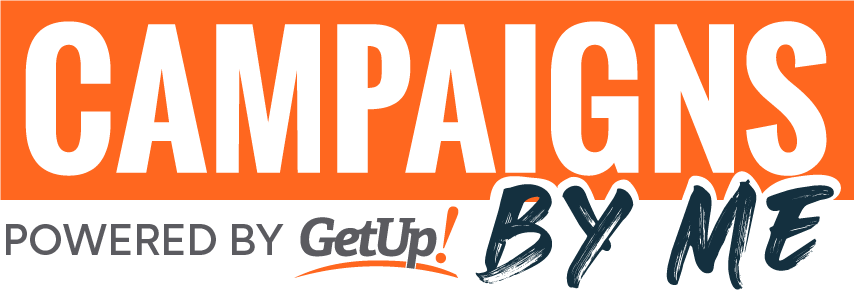To: The Premier of NSW the Honourable Mike Baird
Revoke the NSW Shark Meshing Program

We call on the Premier of NSW Mike Baird to revoke the out-dated and unsuccessful NSW Shark Meshing (Bather Protection) Program. This program has not been scientifically proven to make the ocean safer for people and has killed thousands of non-target and endangered marine animals including a calf humpback whale who recently drowned after entanglement in 2013 off Mona Vale Beach.
The undersigned petitioners therefore ask the Premier to revoke the current NSW Shark Meshing Program. We also ask that any replacement shark mitigation policies substituted to be non-lethal so as to attempt to reasonably provide for the safety of people whilst also ensuring much needed protection for our marine environment.
https://www.youtube.com/watch?v=5xhX7ZKBRqA
The undersigned petitioners therefore ask the Premier to revoke the current NSW Shark Meshing Program. We also ask that any replacement shark mitigation policies substituted to be non-lethal so as to attempt to reasonably provide for the safety of people whilst also ensuring much needed protection for our marine environment.
https://www.youtube.com/watch?v=5xhX7ZKBRqA
Why is this important?
The shark meshing program (SMP) is a lethal shark mitigation policy that has been in place since 1937 in NSW. It is managed by the Department of Primary Industries (DPI) fisheries NSW and contractors (fishers) carry out the program. The nets are set on 51 most popular beaches from Newcastle to Wollongong. The nets are 150m long and 6m high and are set in 10-12 metres of water. Sharks are able to swim over them and around them. The nets are random and indiscriminate killers of marine life and it is reported that 17,000 marine animals have been caught in shark nets in NSW although NSW Fisheries dept reports state that this figure is an underestimation of total numbers of animals caught due to poor historical data collection.
The nets do not keep people safe from sharks. Shark / human interactions have occurred on beaches where shark nets are in place. The 2009 DPI fisheries review into the SMP stated that “the rate of shark attack has remained the same both before and after meshing commenced”. In contradiction to this the DPI fisheries NSW has claimed that “the SMP has been effective at providing a safer environment for swimmers”. However the NSW fisheries scientific committee (FSC) which is tasked with critiquing the program from a scientific standpoint has stated that “this statement is unsubstantiated because it is not based on a scientific comparison between meshed and unmeshed beaches, of shark numbers, interactions or attacks, the FSC requests that the SMP remove the statement" from the previous four annual reports of the SMP which it has failed to do.
Fatal shark incidents are tragic events however with increasing medical technology and quick response first aid the vast majority of shark incidents are survivable – this was not the case back in the 1930’s when the NSW program was first put in place. We believe that the low numbers of shark bite fatalities on meshed beaches is more likely to be attributable to the presence of lifeguards who are able to detect sharks, close beaches and provide fast medical assistance in the event of a shark incident. Sharks are in their natural habitat and statistically the chances of being bitten by one are extremely low. Sharks kill on average 5 people worldwide per year, however people kill over 100 million sharks per year.
Many of the animals caught in beach nets are now considered endangered as such the SMP is now listed as a key threatening process for the following marine animals: humpback, minke and southern right whales, Australian fur seals, dugongs and three species of endangered marine turtles, critically endangered grey nurse sharks and vulnerable great white sharks. Killing endangered animals in their ocean home for the purposes of increasing the safety to people who are visitors is unacceptable in this day and age. A federal Australian Government environment department report in 2005 titled ‘Death or injury to marine species following capture in beach meshing (nets) and drumlines used in shark control programs’ lists some 99 species of marine animal who have been victims of shark control programs, of these 99 species 73% are now listed on the IUCN red-list as near threatened, vulnerable, endangered or critically endangered or are classified as data deficient, or not assessed yet so we don't know if they too belong on the red-list. As animals and ecosystems face increasing environmental pressures, governments are obligated to ensure programs which threaten vulnerable and endangered species are replaced by less harmful measures to ensure human safety.
noNSWsharkcull is campaigning for the removal of shark nets in NSW as these programs are outdated, and have not been demonstrated to make the ocean safer for people. We instead support public education in how to minimise chances of shark bite and scientific research into the tagging and tracking of sharks as alternative means to reduce the chances of shark bite incidents. We also support research into other non-lethal methods of shark mitigation. These methods will reduce the harm to our many endangered and vulnerable marine species including sharks, turtles, whales and dolphins who belong in the ocean and are fighting for their survival. We should be doing everything possible to protect marine ecosystems as they are more fragile than ever. We need shark control methods that make the ocean safer for people and marine animals including sharks.
Sharks as apex predators are vital for the health of the ocean, without sharks scientists predict that the entire ocean ecosystem will collapse. The phytoplankton in the ocean provides up to 70% of the oxygen on the planet for this reason we need to keep our ocean ecosystems in balance.
Healthy oceans need sharks and if the oceans die we die.
The nets do not keep people safe from sharks. Shark / human interactions have occurred on beaches where shark nets are in place. The 2009 DPI fisheries review into the SMP stated that “the rate of shark attack has remained the same both before and after meshing commenced”. In contradiction to this the DPI fisheries NSW has claimed that “the SMP has been effective at providing a safer environment for swimmers”. However the NSW fisheries scientific committee (FSC) which is tasked with critiquing the program from a scientific standpoint has stated that “this statement is unsubstantiated because it is not based on a scientific comparison between meshed and unmeshed beaches, of shark numbers, interactions or attacks, the FSC requests that the SMP remove the statement" from the previous four annual reports of the SMP which it has failed to do.
Fatal shark incidents are tragic events however with increasing medical technology and quick response first aid the vast majority of shark incidents are survivable – this was not the case back in the 1930’s when the NSW program was first put in place. We believe that the low numbers of shark bite fatalities on meshed beaches is more likely to be attributable to the presence of lifeguards who are able to detect sharks, close beaches and provide fast medical assistance in the event of a shark incident. Sharks are in their natural habitat and statistically the chances of being bitten by one are extremely low. Sharks kill on average 5 people worldwide per year, however people kill over 100 million sharks per year.
Many of the animals caught in beach nets are now considered endangered as such the SMP is now listed as a key threatening process for the following marine animals: humpback, minke and southern right whales, Australian fur seals, dugongs and three species of endangered marine turtles, critically endangered grey nurse sharks and vulnerable great white sharks. Killing endangered animals in their ocean home for the purposes of increasing the safety to people who are visitors is unacceptable in this day and age. A federal Australian Government environment department report in 2005 titled ‘Death or injury to marine species following capture in beach meshing (nets) and drumlines used in shark control programs’ lists some 99 species of marine animal who have been victims of shark control programs, of these 99 species 73% are now listed on the IUCN red-list as near threatened, vulnerable, endangered or critically endangered or are classified as data deficient, or not assessed yet so we don't know if they too belong on the red-list. As animals and ecosystems face increasing environmental pressures, governments are obligated to ensure programs which threaten vulnerable and endangered species are replaced by less harmful measures to ensure human safety.
noNSWsharkcull is campaigning for the removal of shark nets in NSW as these programs are outdated, and have not been demonstrated to make the ocean safer for people. We instead support public education in how to minimise chances of shark bite and scientific research into the tagging and tracking of sharks as alternative means to reduce the chances of shark bite incidents. We also support research into other non-lethal methods of shark mitigation. These methods will reduce the harm to our many endangered and vulnerable marine species including sharks, turtles, whales and dolphins who belong in the ocean and are fighting for their survival. We should be doing everything possible to protect marine ecosystems as they are more fragile than ever. We need shark control methods that make the ocean safer for people and marine animals including sharks.
Sharks as apex predators are vital for the health of the ocean, without sharks scientists predict that the entire ocean ecosystem will collapse. The phytoplankton in the ocean provides up to 70% of the oxygen on the planet for this reason we need to keep our ocean ecosystems in balance.
Healthy oceans need sharks and if the oceans die we die.
